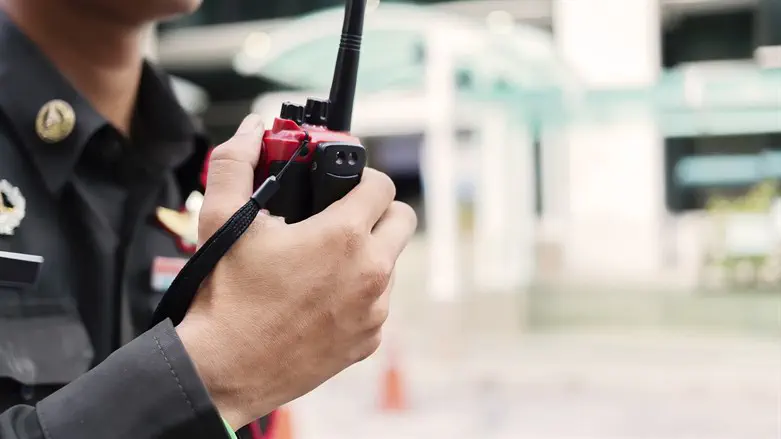
For many Jews, including myself, this phrase evokes discomfort—even offense. Yet ironically, its origin lies not in criticism of Jewish passivity, but in a desperate, impassioned plea for resistance. On January 1, 1942, Jewish poet and partisan Abba Kovner uttered those very words in his Vilna Ghetto Manifesto, urging fellow Jews to rise and fight the Nazis, rather than submit to annihilation.
Fast forward to today, and the threat has returned—not in the same form, but certainly in spirit.
Since the Hamas-led massacre of October 7, 2023, antisemitism has surged across the globe. According to the FBI, anti-Jewish hate crimes in the United States are now at their highest levels on record. The Anti-Defamation League (ADL) reports an astonishing 893% increase in antisemitic incidents between 2014 and 2024.
We are not witnessing a passing trend. We are watching history begin to echo itself.
On May 22, following the tragic murder of Yaron Lischinsky and Sarah Lynn Milgrim—two staffers of the Embassy of Israel to the U.S.—I received an email invitation from the public relations firm Red Banyan. They were promoting a virtual press conference convened by the Jewish Federations of North America (JFNA) in response to the growing threat of antisemitic violence.
Despite the late notice—just 59 minutes before the 5:00 PM meeting—I registered and attended.
The event featured leaders from JFNA, ADL, the Conference of Presidents of Major American Jewish Organizations, and Secure Community Network (SCN). They outlined recommendations for law enforcement and elected officials and emphasized the need for increased security at Jewish institutions.
During the Q&A session, one participant asked if a "letter-writing campaign" would be part of the response plan. The answer: yes. That was, apparently, one of their key initiatives.
When I attempted to respond, I was acknowledged and unmuted—but due to a technical issue, no one could hear me. The session ended after a mere 30 minutes, with the lead speaker inviting follow-up contact by email or phone.
I immediately emailed Red Banyan, explaining the audio issue and requesting a direct conversation with the lead speaker. A Senior Account Manager replied promptly, offering to forward my contact information and message. I then provided details of my background: a terrorism survivor, former military, counterterrorism expert, lecturer/teacher to federal and local law enforcement, and television analyst.
I explained I had an actionable idea—one that would cost virtually nothing—to improve security for Jewish communities and events across the U.S.
I waited.
On May 28, after hearing nothing, I followed up. No response. After the Boulder, Colorado attack on June 1, I emailed again, expressing frustration and reiterating my offer. Silence.
Finally, on June 4, I wrote one last time, making clear I intended to publish an article about my experience. I invited them to issue a comment before publication. They did not respond.
This behavior reflects a broader, troubling trend among American Jewish leadership. Why was I invited to the Zoom call if no one had vetted my background? A simple online search would reveal my credentials and lifelong commitment to fighting terrorism. Was my voice inconvenient?
This incident echoes what I have experienced time and again. I’ve offered my services—free of charge—to local synagogues for years. Security evaluations, threat assessments, even armed protection during services. Most declined.
One rabbi told me, “We don’t want to appear that way. We don’t want to scare our congregants.”
Scare them? Or protect them?
Only one synagogue, the local Chabad Center, accepted the offer after October 7. Others, liberal congregations, remain rooted in the belief that image matters more than survival.
This refusal to confront reality stems from a disturbing blend of denial and political ideology. In the 2024 U.S. election, 84% of Reform-affiliated Jews and 75% of Conservative-affiliated Jews voted for Kamala Harris, according to the Jewish Electorate Institute.
The same people who chant “Never again” seem unwilling to do more than write letters or hire undertrained security guards. Meanwhile, real threats increase and Jews are targeted—not in theory, but in real, bloody attacks.
My idea is simple: a nationwide, volunteer-run network—manned, trained, and led by veterans and retired law enforcement—who would secure Jewish events and gatherings at no cost. These individuals already possess the discipline, the training, and the will to protect. I’ve reached out to my contacts, and the overwhelming response is that this can be done. All it would require is a basic website to coordinate. No bloated budgets. No committees. Just action.
We are told to pursue tikkun olam, to heal the world. But healing the world should not come at the cost of sacrificing our own people. That is not righteousness. That is naïveté.
The phrase "Let us not go as sheep to the slaughter" was never meant to blame. It was a call—a plea—for courage, for action, for self-defense in the face of annihilation.
It’s time we understand that plea again.
Stop wringing your hands. Stop hiding behind politics or platitudes. Stop believing that words alone will stop bullets or bombs.
Learn from history. Take responsibility for your safety. Arm your events with more than hope.
Because the world won’t care if we all go quietly.
Gadi Adelman was born in the USA but grew up in Israel and survived a terrorist bombing. He now teaches on terrorism and Islam and promoting self-defense.